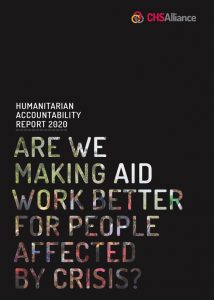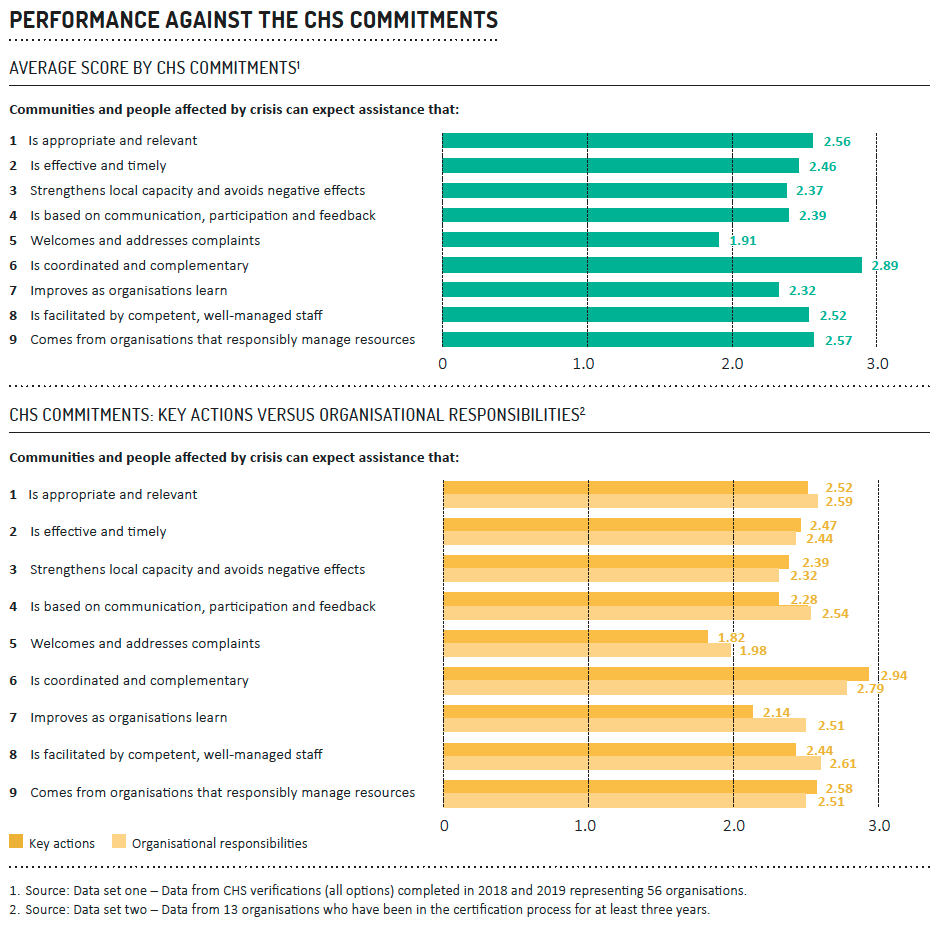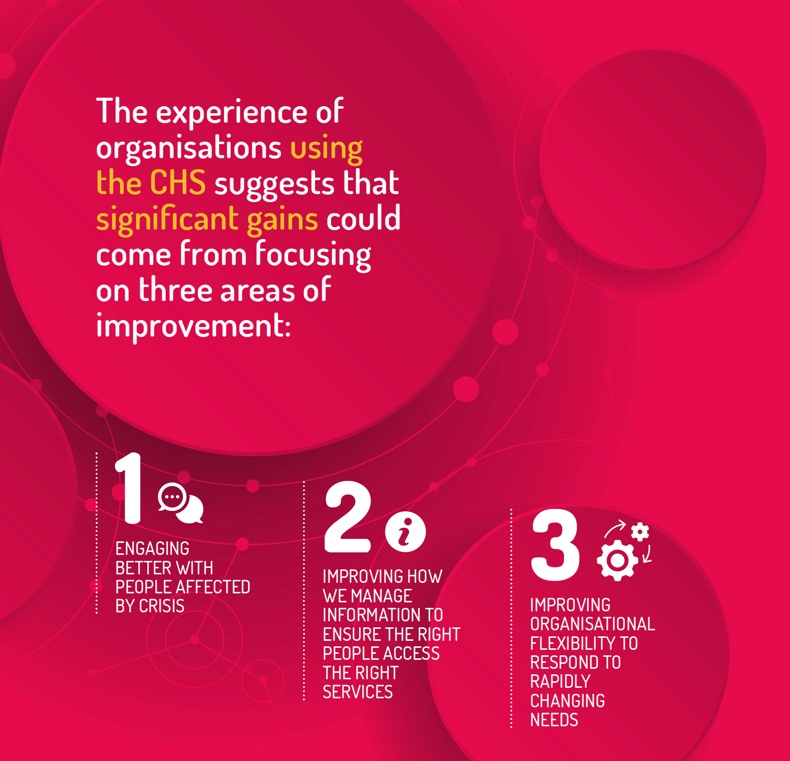New report reveals action needed to meet the commitments made to people affected by crisis
On 6 October 2020 the CHS Alliance – a network of more than 150 aid organisations – launched the Humanitarian Accountability Report (HAR) 2020 ‘Are we making aid work better for people affected by crisis?’.
More than five years after the sector came together to launch the Core Humanitarian Standard on Quality and Accountability (CHS), the HAR 2020 shines a light on the current state of adherence to the Standard by the organisations applying it. The report reveals how much progress CHS-verified organisations have made in meeting their commitments to the children, women, men facing disasters globally.
Overcoming barriers
The new report shows that dedicated aid organisations can tackle the toughest barriers to meeting the commitments they made to people affected by crisis.
As a collective, CHS certified organisations* have made gains on three vital accountability issues that the aid sector has been trying to tackle for decades:
 Strengthening local capacities and avoiding the negative effects of aid (Commitment 3);
Strengthening local capacities and avoiding the negative effects of aid (Commitment 3);- Basing humanitarian response on communication, participation and feedback with people affected by crisis (Commitment 4);
- Welcoming and addressing complaints from people affected by crisis (Commitment 5).
*organisations who have been in the CHS certification process for at least three years.
This progress demonstrates CHS verification is a catalyst to make aid more accountable.
Slow pace of change
Yet the HAR 2020 reveals that the aid sector has not reached its goals:
CHS Commitment 6 on coordination and complementarity is the closest to being fully met by verified organisations, while Commitment 5 on welcoming and addressing complaints is the lowest scoring.
Aggregated CHS verification data also illustrates that performance is generally better in indicators related to establishing policies rather than those related to what staff do in practice.

To see latest CHS verification data, visit our data pages.
Accelerate transformation
The HAR 2020 indicates that we are not yet seeing system-wide acceleration towards a transformative approach that gives communities and people affected by crisis strategic influence over aid. To accelerate the pace of change, the HAR 2020 finds that committed aid organisations need to harness the power of the multiplier effect; they must intensify their efforts on three cross-cutting actions that raise the standard of aid across the board:

“There are many milestones on the road to greater accountability, and this report by the CHS Alliance marks a number of them. It offers valuable insight into the effectiveness of humanitarian responses, which in turn helps to make the sector more accountable” notes Kitty van der Heijden, Director General for International Cooperation, Ministry of Foreign Affairs, the Netherlands in the HAR 2020 foreword.
Critical mass needed
Currently, more than 100 organisations have engaged in CHS verification, yet even with renewed efforts by those already applying the CHS, more need to make similar changes at the same time. No humanitarian organisation works in a vacuum. A critical mass of aid actors must unite around the CHS in concert to truly make aid work better for people affected by crisis and fulfil the commitments the sector made to crisis-affected people in 2014.
Next steps
-
- Read online or download an Executive Summary of the HAR 2020 in English or French.
- Read online or download the full HAR 2020.
- Share the news from HAR 2020 with your colleagues, partners and networks – be part of the campaign to Raise the Standard of aid by sharing items from our online toolkit, available in English and French.
- Catch up on the virtual launch of the HAR 2020:
